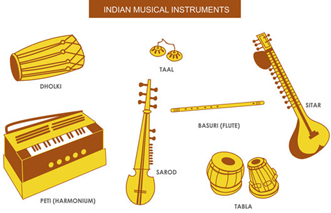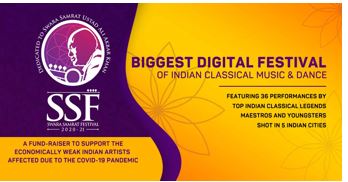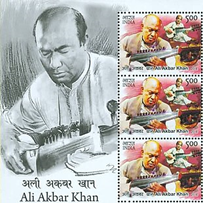

22th July 2022 (7 Topics)
Context
The 10th edition of Swara Samrat festival is being celebrated as a centennial of sarod maestro Ustad Ali Akbar Khan.
About
About the event
- Swara Samrat festival (also known as SSF) is a four-day annual mega festival of Indian classical music and dance.
- This festival is the brainchild of Sarod maestro Pandit Tejendra Narayan Majumdar, his wife, Manasi Majumder and their son Indrayuddh Majumder.
- The festival is dedicated to Swara Samrat Ustad Ali Akbar Khan.
- It generallyheld during the winters in Kolkata, India. This event is going to be for the year 2020-21. This year it will be organised in Delhi.
- Awards are given for both Music and Dance
|
Swara Samrat Ustad Ali Akbar Khan
|
|
Some major Awards
|
Hindustani Classical Music
- Hindustani music is one of the two principal types of South Asian classical music.
- (The other principal type, Karnatak music, is found in the Dravidian-speaking region of southern India.)
- It is found mainly in the northern three-fourths of the subcontinent, where Indo-Aryan languages are spoken.
- The roots of Hindustani Music is traced to the emergence of Dhrupad & Dhamar. It further developed into Vocal & Instrumental Streams.
- Further emergence of Khayal from Dhrupad as a result of influence of the Mughal Kingdom, Classical Music underwent a change in character, moving from Temples to the Courts.
- Names like Miyan Tansen have been one of the greatest influence on the Hindustani Style.
- Instruments: The most prominent instruments of Hindustani music are the

- Sitar (a long-necked fretted lute with about 30 melodic, drone, and sympathetic strings)
- Sarod (a short-necked unfretted lute with sympathetic and drone strings)
- Sarangi (a bowed fiddle)
- Shehnai (an oboe like wind instrument)
- table (a set of two drums played by one musician, the right-hand drum carefully tuned)
- tambura(a large long-necked lute with four strings, used only to play the supporting drone, a single repeated chord)

|
Styles of Singing Various styles of singing in the North Indian Style are Dhrupad, Khayal, Thumri, Tarana and Tappa.
|
More Articles





